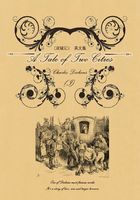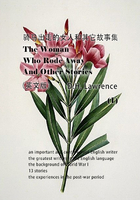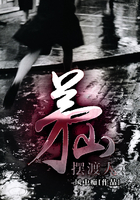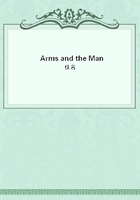During our stay at Waterford I fell into many irregularities. The common girls of the town were lavish of their favours to the military, whose handsome facings and well-set-up appearance exercised a sort of fascination upon them; and since the Roman Church regarded such errors as venial, so long as the men they chose were not known to them to be married, I had much gratification at little expense. I also acquired a taste for the raw spirit distilled by the peasants from potatoes, which was as potent as it was easy to come by. However, my strongest prepossession was for gambling, and 'the Devil's picture book,' as the Methodists term a pack of cards, was now my favourite study. Being inexperienced in barrack-room life, I was a regular loser in whatever games of chance I attempted. In Dublin I had acquired a sharp eye for those forms of cheating in which cards are secretly removed from the pack to the dealer's advantage, or the pack is arranged beforehand and only a pretence of cutting and shuffling made. But I had yet to learn the maxim, which it cost me a large sum of money to frame for myself: never to use an opponent's pack more often than my own. For though in The Ninth no one, I dare affirm, marked his cards with the faint thumb-nail scratches and notches used in the fashionable clubs of London, there was not a pack in use among us of which each card had not acquired a distinct character of its own by constant handling. A shepherd knows every ewe in his flock by some slight difference of appearance, which would certainly escape the eye of the stranger unless one happened to be blind, lame, or tailless: in this same way every owner of a pack knew his own cards at a glance, soon as dealt, even though there might be no broken corner or torn edge among them. This knowledge put him in the ascendancy over players who knew only a half dozen of them at most, even after playing several times with the pack.
Sergeant Fitzpatrick and his good wife used to counsel me strongly against my passion for gambling. He used to say: 'Private Lamb, the practice will involve you in severe difficulties. Even where money is not risked, the playing of cards administers to idleness and dissipation; and where money is risked, the winner proceeds with ideas of avarice, and the loser to recover his losses; until the precipice yawns equally for both.' And she would quote from a poem of which I do not recollect the title:
Cards are superfluous, with all the tricks
That idleness has ever yet contrived,
To fill the void of an unfurnished brain,
To palliate dullness and give time a shove.
To supply the expenses of gaming, the privates sold their necessaries, besides squandering their pay: on such occasions they dreaded an officer's inspection of the barrack-room when they had to lay out their belongings for his scrutiny. But they almost invariably managed to elude punishment, by borrowing shirts, gaiters, stockings, and other articles of regimental appointment from comrades who happened to be sick or absent on guard duty. It was, among us, held a matter of honour to pay gambling debts within twenty-four hours of incurring them, and a man would rather commit crimes which even common and statute law punishes as capital offences than fail to meet such obligations.
In July, 1774, our regiment received the route for the North of Ireland, and on our arrival there, by way of Dublin-where, to my satisfaction, I found my father more friendly disposed towards me-the companies were distributed among the various towns of Ulster. I happened to be ordered on command, in a detachment of twelve men under Lieutenant Sweetenham, to Saintfield, ten miles distant from Belfast. It was a small but neat town once extensively engaged in the linen manufacture; but then in decay. The neighbourhood of Belfast was very ill disposed to the British Government, because of the way in which its ministers had played fast and loose with Irish trade and industry. The greater cheapness of living and labour in Ireland had always rendered her a dangerous commercial rival to England. First of all we were forbidden to export cattle, so our land-owners turned their land into sheep-walks, and a flourishing woollen industry was presently begun. This industry, which employed thirty thousand families in Dublin alone, was crushed in my grandfather's day by laws prohibiting the export of Irish wool or cloth, not only to England and the colonies, but to any country whatsoever. In compensation, a promise was made that our linen and hemp manufacture should be encouraged; but no sooner was the linen trade well established than innumerable restrictions were put upon it so that Irish should not compete with English and Scottish linen (which were subsidized by the Government) in any country in the world-nor even with Dutch linen, for fear the Dutch, in retaliation, ceased to buy English woollens.
As a result of this jealousy of the English manufacturers ten thousand or more weavers had since five years been obliged to emigrate to America, whence they wrote home letters full of rancour. The spirit of these weavers, who were all Presbyterians, was the Dissidence of Dissent, and was more obnoxious to our Protestant ruling classes even than Popery. Many thousands of Presbyterians had previously emigrated to America, being driven from their homes at the beginning of the eighteenth century by the inquisitorial Test Act, though they had been among King William's staunchest supporters at the Protestant revolution. These had become backwoodsmen of the Western Border, and were to be among the fiercest and most redoubtable foes with whom we had to contend in the American War. From a great many inhabitants of Saintfield we therefore received black and sullen looks; none the less, the women here, as in the South, appeared very ready to court with our men, especially where there seemed a prospect of matrimony.
There was a very beautiful girl living at Newton Breda, two and a half miles distant from the inn where we were quartered, the daughter of a retired English merchant captain and a former lady's maid in the household of Lord Dungannon, whose seat of Belvoir lay adjacent. Father and daughter resided together in humble circumstances, the mother being lately deceased. I conceived a great passion for Miss Kate and would have made her my wife had she consented, since she was a Protestant like myself, and there was no obstacle to our union but my poverty. But she put me off with a tender firmness, and would not so much as allow me the smallest familiarity with her. I did not suspect that I had a rival, at least among the soldiery. The Saintfield horse-barrack lay empty at this time and I flattered myself that of all my comrades there was none to whom she could give the preference over me.
She continued to treat me with friendship and did not discourage my visits. Nor was her father at all averse to my visits at the house, though he made it clear enough that I must not deceive myself with any hopes in regard to his daughter until I held at least a corporal's rank. With my education, he said, and my natural talents, I might within a few years rise high in the Service.
To be brief: this Kate Weldone, who was dark-haired, well-featured, and of a gracefully rounded figure, and had, besides, remarkable wit and spirit, told me one day during her father's absence from the house that she was in great grief. She said that she would do almost anything in the world to recompense me if I would risk a crime for her sake.
I resented this question, and asked her whether she mistook me for a rapparee or bully.
But her misery was so remarkable that I softened towards her. Indeed, I presently assured her that I would commit almost any crime in the world, just for the satisfaction of pleasing her, so long as it were no vulgar crime, of theft or murder, and did not injure any of my comrades.
At this, she ran into my embrace and kissed me wildly. She swore that what she asked was in the interests of her own greatest happiness and would not hurt any one at all, least of all any comrade of mine.
'A strange sort of crime that hurts nobody, yet benefits you, my dearest Kate,' said I. 'Very well. On condition that it is indeed exactly as you say, I hereby swear by my honour to do for you whatever lies in my power: and I shall leave the assessment of my reward to your generosity.'
Her father happened to approach the room at the moment, but we broke our embrace in time, warned by his difficult breathing. On his entry he did not observe the emotion under which both of us were labouring, and called for a dish of tea.
'I hear from the innkeeper, Private Lamb,' he said, after we had exchanged our usual civilities and his daughter had busied herself in blowing up the fire, 'that even were I willing to give you my daughter, which I am not, the marriage could not now be solemnized. Your Commanding Officer has to-day issued a general order to prevent private soldiers from marrying without written licence signed by the officer of their company or detachment. He has desired the ministers of the places concerned not to solemnize the marriages of soldiers without calling for such a paper from them.'
Miss Kate affected indifference to the news, and Captain Weldone then went to repeat a rumour that orders were soon expected for us to be sent to Boston in New England, where the colonists were at this time in almost open rebellion. Major Bolton's action was read as a precaution against more soldiers' wives being taken than could be received aboard the transports when we embarked for America. 'It's an ill wind, etc.,' he said. 'If you are sent, and a campaign develops, your promotion is likely to be accelerated, and on your return I shall, I trust, find no reason for refusing you my Kate, if she be still willing.'
This made me suppose that there was an understanding between the Captain and his daughter on the subject, that she had confessed to her liking for me, and that only my lowness of station and my poverty prevented the consummation of my hopes. I returned to our quarters in an elated frame of mind, and after buying drinks for the whole company called on my comrades for a game of cards. We played a while for very trifling stakes, since they were so far reduced in wealth that most of them had been forced to keg themselves: that is to say, they had taken a common form of oath not to borrow, lend, touch spirituous liquors or lose more than a penny a game at cards or dice, until they had saved enough of their pay to repurchase the necessaries which they had sold. The restriction seemed to irk my friend Harlowe, for he asked in a tone of challenge whether there was not a soul present who would dare to bet with him in visible coin. 'I have just bought a new pack of cards,' he said, 'and I'll break the seal for any one who will match me through the pack, card against card, the ace to take precedence over the king.'
He fetched the cards, broke the seal and shuffled them while I fetched drink for the two of us. He was my messmate and much obliged to me for a variety of services, and I therefore did not do him the discourtesy of watching him at the shuffle. He dealt out the cards alternately, so that we had half the pack each. They were smuggled Spanish cards, a sort which we favoured because they were both stout and cheap. They ran forty-eight to the pack, and Primero was our favourite game with them.
We matched card against card at threepence a sight, and when at the eighth card he was a shilling and threepence ahead of me, I called on him to double the stake: which he did.
At the twenty-fourth card I owed him eight shillings and ninepence and, desperate at the greatness of this sum, called on him to double the stakes again. He refused, saying that he would not run me into such a thicket as would tear the clothes off my back, thread and thrum; but I insisted, and my comrades called him a coward and told him in the language of the cock-pit to 'beak up and fight it out to the throttle.' So he consented, though with an appearance of comradely reluctance and concern: and when only eight cards were left to play I owed him sixteen shillings. I doubled the stakes again, and he consented 'to give me a chance to win the whole sum back.' But I continued to lose, at two shillings a card, twice out of every three times; and when the last card had been turned up, and I lost even that, my debt to Harlowe stood at the prodigious sum-for us-of twenty-nine shillings and ninepence.
There was dead silence for a while, and I sat stupidly fingering the cards with my left hand and drumming the Devil's tattoo on the table with the fingers of my right.
Nobody laughed, for it was well understood that I could not afford to quit my debt within the statutory time. I was well enough liked by the men, many of whom would have been willing to accommodate me with a loan, had they been able; but they were kegging themselves and could do nothing. For Harlowe they had no liking and avoided his company as much as they decently could, he being a bird of another feather than their own. Mad Johnny Maguire offered me one shilling and sixpence, which was all he had, and Terry Reeves two, which was more than he had in coin; but this sum, added to what I had in my pockets, still fell short of the debt by a guinea. All those present behaved like mourners at a decent funeral.
I burst out laughing and shouted: 'Oh, by the Holy, it's come to this, has it? Well, down goes the whisky, and that's the last drink I'll swallow for a long while, for now I'll be kegging myself to Harlowe.' As an alternative to paying a debt, if the sum exceeded one month's pay, a soldier might keg himself to the victor: that is, abstain from all drink and gaming and make over all his pay, except one shilling a week, to his creditor. Nevertheless, the creditor had the right to refuse to compound in this manner if he distrusted the debtor; and the debtor was then bound to obtain the money by some other means.
Harlowe looked narrowly into my eyes. 'And what if I refuse to let you keg yourself to me?' he inquired. 'Have you always treated me in so comradely a way that you should expect generosity or mercy now?'
I could not in the least understand what he meant by this, nor could any one else present. There were murmurs of astonishment and indignation. However, Maguire said: 'This is none of our business, lads. There's a she in the case, I'll be bound. Let us leave these bucks to settle it between them in private.'
'Comrades, I have nothing whatever on my conscience,' I declared, 'in regard to Private Harlowe. Indeed, since the time when we were recruits together, I have treated him with far greater delicacy, I think, than many persons of my acquaintance.'
There was a laugh at this, for only the night before I had dissuaded Smutchy Steel, whom enforced abstinence had made quarrelsome, from daubing the tap-room wall, as he threatened, with Harlowe's entrails.
'You must come outside,' pronounced Harlowe, 'if you wish to talk compound with me.'
We went out for a jaunt down the Newton Breda road.
'How have I offended you, Harlowe?' I inquired. 'For I know that you would not refuse me to keg myself to you, unless you considered yourself in some way injured.'
He did not answer me outright, but paced along by my side in a silence which greatly annoyed me.
I stopped in my stride, faced about, pulled him backwards by the shoulders and told him: 'Gentleman Harlowe, if you will have your pound of flesh, then by God, say so plainly like an honest Shylock. For then I'll go on the pad, cut the purse and throat of some innocent traveller and the money will be yours by morning, though I swing high for it.'
'No, Gerry,' he replied softly, 'it need not come to that. But I'll remit the whole debt and present you with my painted snuff-box, which you have so long coveted, into the bargain, if you will but give me the help, not of your side-arm but of your pen.'
I thought for the moment that he had gone out of his wits. I inquired, 'Am I to write out the whole of Pope's Essay on Man in a flowing hand, like a schoolboy punished for orchard-robbing?'
'No,' he said, 'two words would serve, almost.'
'Don't tantalize me further,' I cried. 'What joke are you driving?'
Thereupon he explained: 'I am bent on contracting marriage with a girl of this town. Not only is our scheme unknown to her father, who would object to it, but there is a general order posted this morning which prevents such marriages from being solemnized without the written permission of an officer. You know that Lieutenant Sweetenham has a strong antipathy to me, at any rate, and that he would reject my request, did I dare make it, with contempt. You write a good hand and arc used by the Lieutenant as his amanuensis. You are therefore familiar both with his composition and his signature. Now, my proposal to you is that you shall counterfeit the Lieutenant's signature to the licence and accompany me with it to the minister's house, to arrange for the solemnization of my marriage. If you will do all this, you are quit of your debt; and the snuff-box, too, is yours.'
I stared dumbly at him and many strange emotions stirred within my breast. How thankful I now am that I did not do what came uppermost to my mind, which was to take him by the throat and choke him in rage, scorn, and envy. For, like a flash, the explanation of the evening's events came upon me. The woman with whom he contemplated marriage could be none other than Kate Weldone. Her careful amity with me had been a mere pretence to conceal her infatuation for my comrade Gentleman Harlowe-against whom her father had conceived a strong prejudice on our first arrival at the town and whom he had told bluntly, he was an unwelcome visitor at the cottage. The petition that Kate had been on the point of disclosing to me and that I had undertaken in advance to grant, for love of her, was the very same that Harlowe had now converted into an obligation, by a downright cheat. For I was suddenly convinced that the cards had been rigged by him with this very object. I was sensible enough to reflect, however, that this fraud must have been unknown to Miss Kate, for otherwise she would not have troubled to plead with me in so melting a way; and that I could therefore not justly be incensed with her.
I therefore contented myself by saying shortly to my companion: 'I must think this over a spell.' I turned on my heel and left him standing there.
It was a starry but moonless night and I had the luck to recognize old Captain Weldone as he passed me on the road, he not recognizing me. I could now count upon gaining admittance at the cottage and speaking to Kate, without recourse to any stratagem. She had already retired to rest, as I knew by the candle-light at her window; but I threw up a pebble and she presently put her head out and called, 'Is that you, my sweet Dick?'
Dick was Harlowe's name, so I knew that I had read the story aright. But nevertheless I carried on with my game.
'No,' said I, 'it is no sweet Dick, nor no common Tom or Harry, but it's myself, Private Roger Lamb. I have come to hear the service that I am to do for you, since it weighs so heavy on your mind.'
She descended after a while, with her hair loose upon her shoulders, and, upon my urging her, disclosed to me the very same plan of forgery that I had just heard from Gentleman Harlowe's lips, though she was more frank than he in naming him as her intended spouse. I simulated grief, surprise, and a great unwillingness, but she urged that I had given my word. I agreed at last, making one condition only, which she swore on her honour to keep: that she was not on any account to reveal to Harlowe her request of me, and that the very next words she spoke to him would be begging him to propose the plan to me himself as an act of friendship. 'If he does so, I will agree readily,' I assured her, 'and thus persuade him, against truth but in the interests of your own honour, that the object of my visits to this house has always been rather your father than yourself.'
She considered this more than handsome on my part, and with expressions of unmistakable affection, which I need not rehearse, promised never to forget the heavy debt that she was incurring. Presently I said good night and we parted.
On my way home to our quarters, I smiled sourly to myself at the comedy which would ensue: Harlowe would agree, at Miss Kate's instance, to urge me for friendship's sake to forge the document; and yet be greatly troubled in his mind lest I reveal to her, at my next visit to the cottage, in what manner that crime had already been forced upon me.
My spirits were totally restored by an incident upon the road. I passed by a poor thatched cabin from which issued the agreeable sound of a fiddle very masterly played; and the melody so plucked at me that I turned aside, pushed upon the door and entered. It was a scene of the most distressful poverty. That the inhabitants were Papists was shown by the wooden crucifix hanging on the rough earthen wall. I found them to consist of a sick man groaning on a straw pallet; an ailing young woman crouched before a low fire, over which potatoes were boiling un-skinned in an old iron pot on legs; three half-naked dirty children tumbling in a corner; four starved fowls roosting on a beam; and an old grandfather with ragged white hair seated on a stool at the opposite side of the fire from the woman. It was he was playing upon the fiddle, and his face was away from me as I entered.
He put down his instrument and spoke something to me in the Gaelic tongue without turning round. The woman translated for him. 'He says you are welcome, your Honour, and to be seated on this stool. He has not the English and he is blind; but he has the Sight. He told us this morning that a tall young soldier visits us this evening.'
I asked: 'What was that tune he was playing? It seemed to invite me to enter.'
She replied that the Gaelic words concerned a woman for whose sake a wise man would not trouble himself. She repeated them to me, and they may be Englished thus:
O woman shapely as the swan
Should I turn wan
For love of thee?
O turn those blue and rolling eyes
On men unwise-
They wound not me.
The old man spoke again. The woman informed me: 'My man's father says that he played the tune for your comfort.'
'Thank him kindly,' I said, 'and pray give him this shilling if he will consent to take a fee. But how in the world could he have known my need of it?'
'I tell you, he has the Sight,' she returned.
The old man pocketed the shilling with satisfaction and, seizing up his fiddle again, resumed his playing to such an effect that my breast swelled with the strangest alternations of enraged despair and amused equanimity; and, having thus amused himself with me for awhile, let the music drop into a lullaby so compelling that I felt myself falling off into a deep sleep where I sat on the stool.
I awoke with a startle, to find that the music had stopped and that the old man was laughing at me.
'He has all the ancient gifts of music,' said the woman.
'It was a shilling well spent,' I rejoined, rubbing my eyes, and thereupon went over to shake my host by the hand. He retained my fingers in a surprisingly powerful grasp, and I had the conviction that he was able to read my inmost thoughts while so engaged.
He spoke at last and (as the woman gave me to understand) ran through many exact particulars of my past life, including the story of my early escape from drowning and my attempted desertion, promised me happy issue to my present troubles, but a long and hazardous life to follow. He also assured me of a future event so fantastical that I laughed outright to hear of it: that when next I attempted desertion I should succeed in the attempt and that I should be thanked for my pains by a general with a shining star on his breast.
I returned to the tap-room in a sort of dream, but the familiar close smell of the room restored me to my usual senses. I recollected the plan of conduct that I had drawn up for myself before the distraction of that fiddling lured me from the road.
As I pushed open the door, all eyes turned on me.
I said to Mad Johnny Maguire: 'Maguire, my good friend, I'll not require your loan, nor yours neither, Terry Reeves, though I thank you from the bottom of my heart.'
Terry Reeves asked: 'Have you compounded then with the Gentleman?'
My staunch resolve was that in no possible respect would I be beholden to my successful rival. I replied shortly: 'I am permitted to keg myself to him after all.'
Harlowe started, but said nothing, for I continued: 'He has asked me also, in return for this permission, to perform a certain small service for him, and I have consented to that.'
Harlowe raised his eyebrows in an inquiring manner; I nodded good-humouredly in his direction.
He fumbled in his pouch and drew out the snuff-box, which was a pretty enough piece, with a painting on it of the Limerick coach with its four matched horses at full gallop.
'I accept the token, Gentleman Harlowe,' I said softly. But, after helping myself to a pinch of snuff, I threw it to the back of the grate where the fire was crackling hotly under a kettle hung from a chain.
This seemed so droll and unaccountable an action that nobody had the wit to snatch the box from the fire for his own use: the company watched it slowly scorch and char, scrutinizing our countenances between-whiles as if to read the riddle. Both Harlowe and I sat impassive, and they remained nonplussed.
Harlowe was the first to speak: 'Well, it was yours, Gerry Lamb. You have a right to burn or squander whatever is yours, I suppose.'
'I have kegged myself to you, Gentleman Harlowe,' I said, 'and I shall have arranged the other matter to your satisfaction before the coming pay-night.'
I was as good as my word, and Fortune assisted me smilingly. The next day was the 28th of July, which was kept in The Ninth as an anniversary of the Relief of Londonderry in the year 1689; at this exploit The Ninth had assisted, when the Mountjoy, with some of our musketeers aboard her, broke the boom across the river, and King James consequently raised the siege. Lieutenant Sweetenham called me in, an hour or two before his celebratory dinner, to copy for him in a fair hand some official papers to which he would then attach his signature. I considered whether to smuggle the marriage licence in among these papers, bringing them to him just before he sat down to dine with an ensign and another lieutenant, invited by him from neighbouring commands. But I rejected this project as too daring, though he was a man who, for negligence, seldom read through even the most important paper before he signed it.
Throughout the next day he was incapacitated from duty by a surfeit of roasted goose and of Madeira wine, four cases of which had been ordered up for this celebration; and on that afternoon, at four o'clock, Private Richard Harlowe was clandestinely married to Kate Weldone by a curate of Saintfield whom I had imposed upon. In Northern Ireland in those days it was not difficult, I confess, to find a minister to solemnize a marriage in a hurry and without proper ceremony: if he were visited in his front parlour at any time after noon, when it was ten chances in twelve that he would be perfectly inebriated.
I afterwards brazened it out with the Lieutenant. Upon his recovery, I reported to him, in a casual manner, that the marriage had passed without incident and that Private Harlowe had drunk his officer's health with grateful devotion.
'What marriage in the Devil's name is that?' the Lieutenant asked petulantly. 'I sanctioned none, so far as I am aware.'
'Oh, doesn't your Honour remember signing the permission after dinner last night, which I brought to you at your own urgent request?'
'I remember nothing at all of last night's events,' he complained. 'If you now told me that I stripped myself naked and waved my small-clothes in the air like a flag, shouting "Death to the Papist pigs," I would believe you, Private Lamb; not being able to swear to the contrary and knowing you for an honest man.'
'It is exactly what your Honour did,' I said, very truly, 'for we all witnessed it.'
Lieutenant Sweetenham did not push his inquiry into the marriage-matter further, but buried his head remorsefully in his feather pillow; and that was the first and last that I heard of it from him. But I faithfully kept my kegging-contract with Harlowe, intending that every penny I paid him on a Saturday night would scorch his palm.
Old Captain Weldone took his daughter's marriage ill, and would not permit his son-in-law to lodge in the cottage during all the time that we were stationed there. However, he did not suspect my hand in it and I continued with my visits to the cottage, in order both to gratify the old man, who enjoyed my society, and to displease Harlowe. To Mrs. Harlowe I was very civil and said nothing to wound her feelings. She would entrust messages to me for her husband, which it tickled my crooked humour to deliver to him with every outward show of good comradeship.
It was in this year that the octagonal tower of Craigenamanagh Cathedral fell down; and when we heard the news, we shook our heads. That the Devil was loose again in Ireland was ill news. It was said that he had not been sighted for certain in our country since his apparition to Saint Moling, near a thousand years before.















